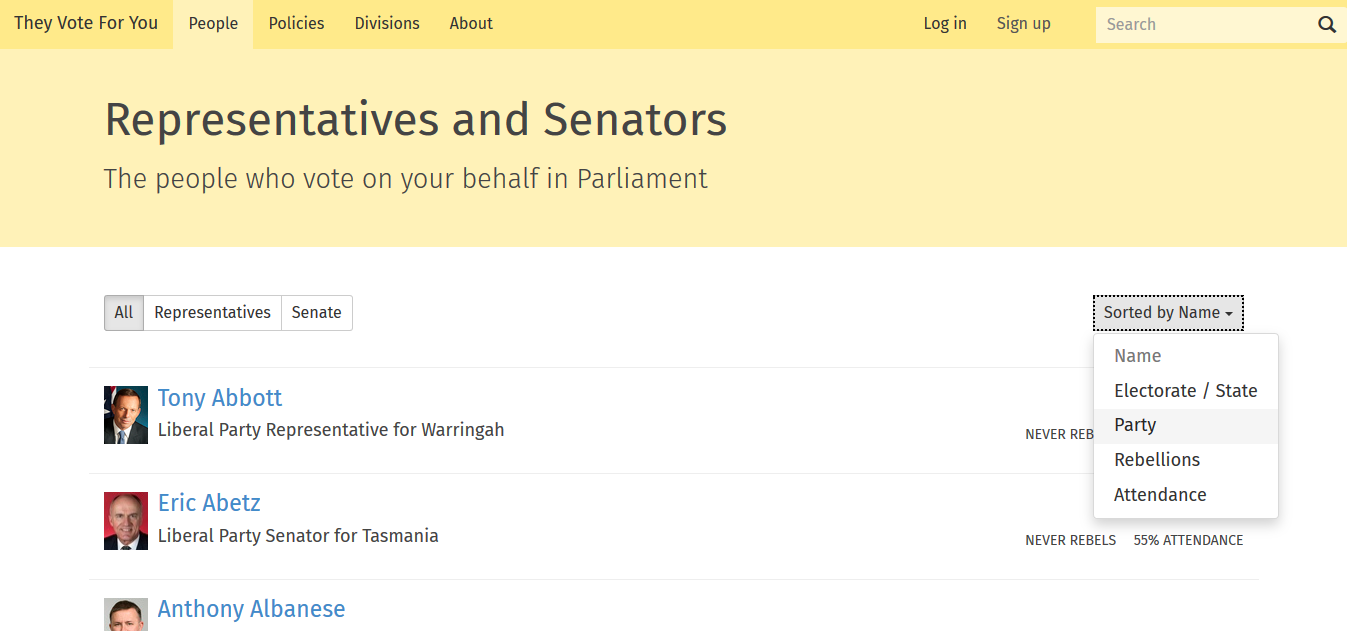
They Vote For You is based on the principle of holding individual representatives to account. You can find your representative’s report card and see how your electorate’s voting power is being used in Parliament. If you’re unhappy with what you find, you can contact your representative and ask for an explanation. And if you’re very unhappy, you can vote against them in the upcoming federal election.
That’s how They Vote For You works: you look up your representative and you assess their individual performance. But does this person-based approach reflect reality?
Party politics
The vast majority of our MPs and senators belong to a party. And most belong to either the Australian Labor Party or to the Coalition (which is actually an alliance of parties). This means that when our representatives vote in Parliament, they vote along party lines – a process that is helped along by party whips who make sure their members vote the way their party wants them to vote.
On very rare occasions, our politicians rebel and cross the floor to vote with the other side. But this usually leads to the rebellious representative leaving the party, as was the case with former Liberal and now Independent MP for Chisolm Julia Banks.
This all begs the question: when we go to the polls on 18 May 2019, who are we voting for? The person? Or the party?
The answer no doubt depends on each voter themselves, as many of us have strong party affiliations whether or not we’re actually card-carrying members. Only you can say whether you’re ticking that box because you think Person X will best represent your electorate or because you like their party and want it to have the most voting power in Parliament.
And thanks to our party-based political system, both of these approaches to voting are valid.
But the important thing to remember is this: your representative is only in Parliament because your electorate put them there. And that means you outrank the party whip when it comes to deciding how they should vote on your behalf.
So after this election is over and the business of government resumes, remember to keep an eye on how your representative is voting for you on the issues you care about and, if you don’t like what you see, tell them about it. Because ultimately, they answer to you.